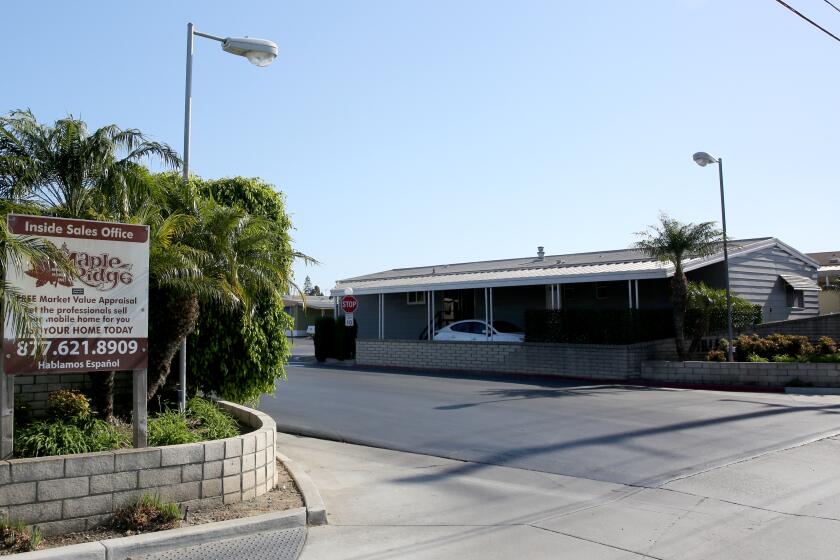A watchful eye at OCC
- Share via
An important story has unfolded on the campus of Orange Coast
College, one noteworthy for the community that sends its children to
OCC and for the student journalists who uncovered it.
Those students, in particular the editor in chief of the campus
newspaper, Mike Billings, and its copy editor, Matt Ballinger,
decided after weeks of investigation that a student budget committee,
charged with doling out more than $700,000 in public funds, had met
three times in closed meetings in violation of the state’s
open-meeting law.
The paper, the Coast Report, detailed these findings in several
stories and an editorial, in which the paper called on the committee
to open its doors and allow its actions to come under public review.
Campus administrators -- who suggest that the students’ motivation
may be less about journalistic principles and more about the reduced
funding the paper received -- said that if the student committee is
in violation of the law, known as the Brown Act, they will open the
meetings. They argue, however, that the law does not cover such
student groups.
“We will do whatever we have to do to exempt [the budget
committee] from the Brown Act,” OCC President Gene Farrell said. “The
reason is to protect the students because we don’t want our students
exposed publicly by anyone in those deliberations. The students can
be pretty critical, and they are not treated like they are in the
outside world. We don’t want these students to take that kind of
criticism. We want to give them a taste of it. We want them to grow
into it.”
That sentiment is understandable, even laudable. But sentiment
cannot supersede law. And judging by the Coast Report’s detailed
coverage and the opinions of lawyers, the Brown Act would apply to
the student budget group, which handles public money.
The act -- named for its sponsor, Assemblyman Ralph M. Brown --
became law in 1953. Over the years, court decisions have augmented
the law, the Legislature has made its own changes, and major
revisions were made in 1994.
Its basic premise is simple: “[B]oards and councils and the other
public agencies in this state exist to aid in the conduct of the
people’s business,” the law reads. “It is the intent of the law that
their actions be taken openly and that their deliberations be
conducted openly.
“The people of this state do not yield their sovereignty to the
agencies which serve them. The people, in delegating authority, do
not give their public servants their right to decide what is good for
the people to know and what is not good for them to know. The people
insist on remaining informed so that they may retain control over the
instruments they have created.”
That needs to be true, whether in a city hall or at a meeting of
student leaders. It is imperative that the Newport-Mesa community
remember that, and that residents remain vigilant to any violation of
the law.
Those residents should also be thankful that there are watchdogs
in the community such as Billings and Ballinger. Their work helps us
maintain a free and open society and is at the root of what is best
and most important about journalism.
All the latest on Orange County from Orange County.
Get our free TimesOC newsletter.
You may occasionally receive promotional content from the Daily Pilot.



